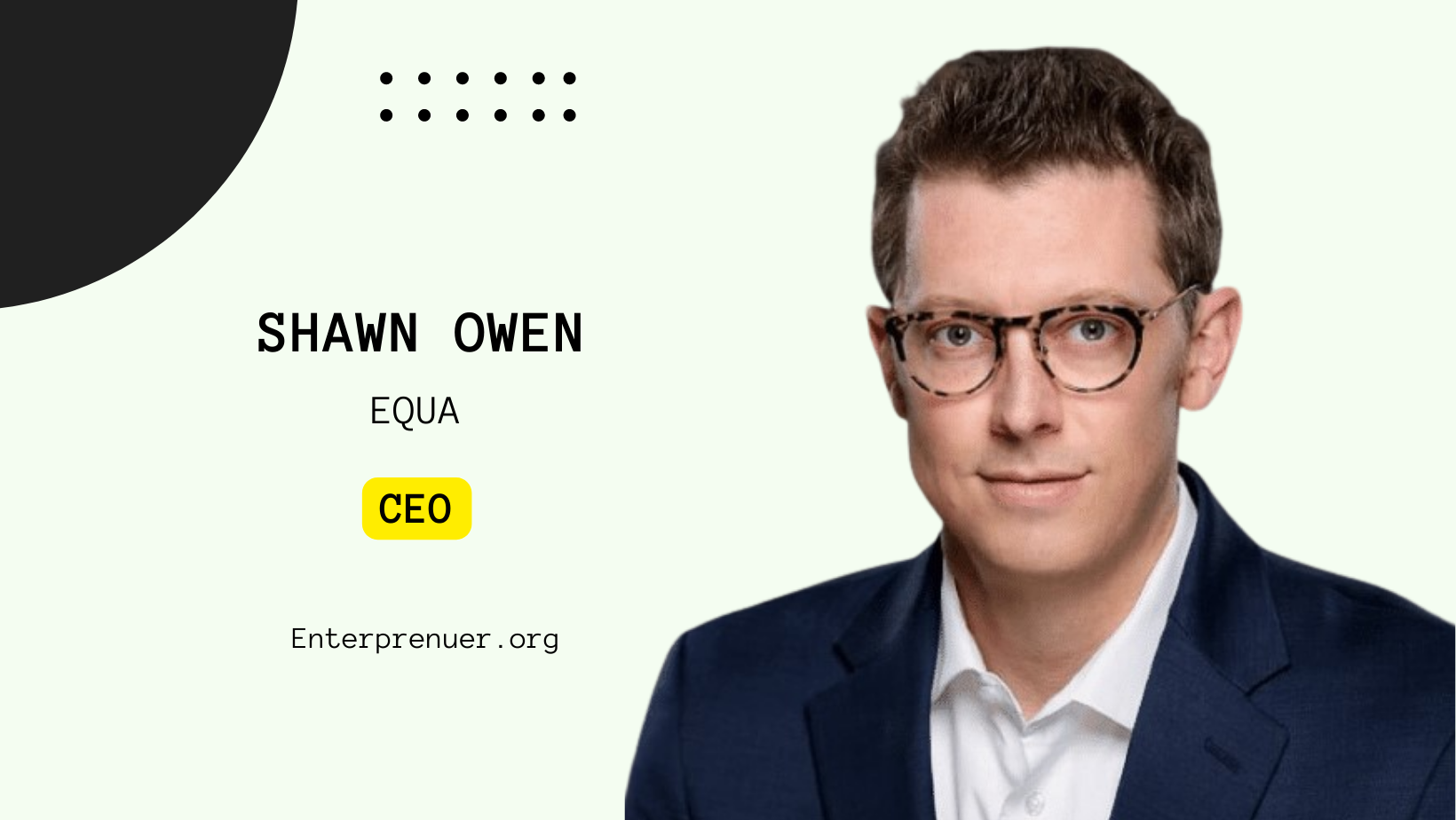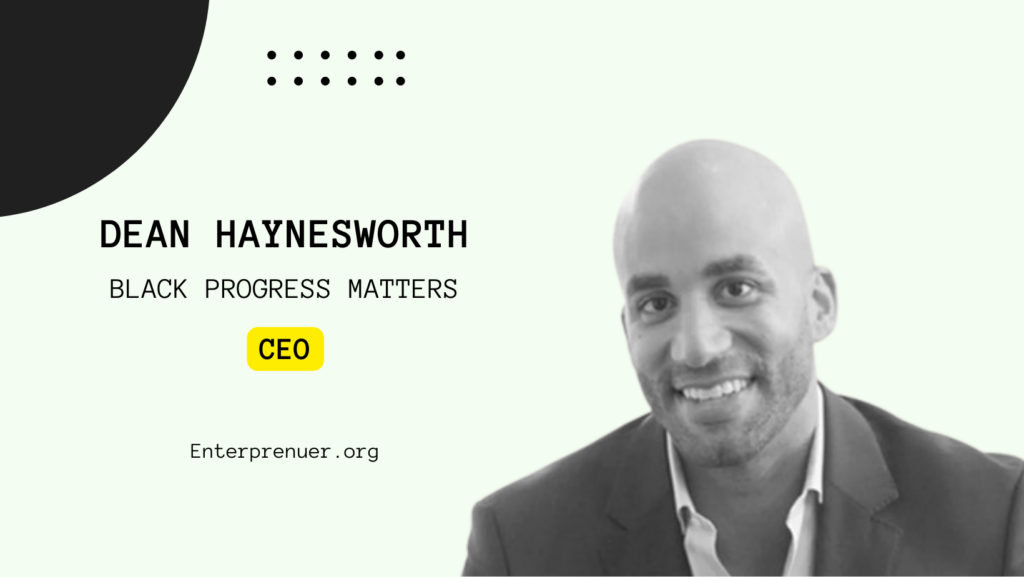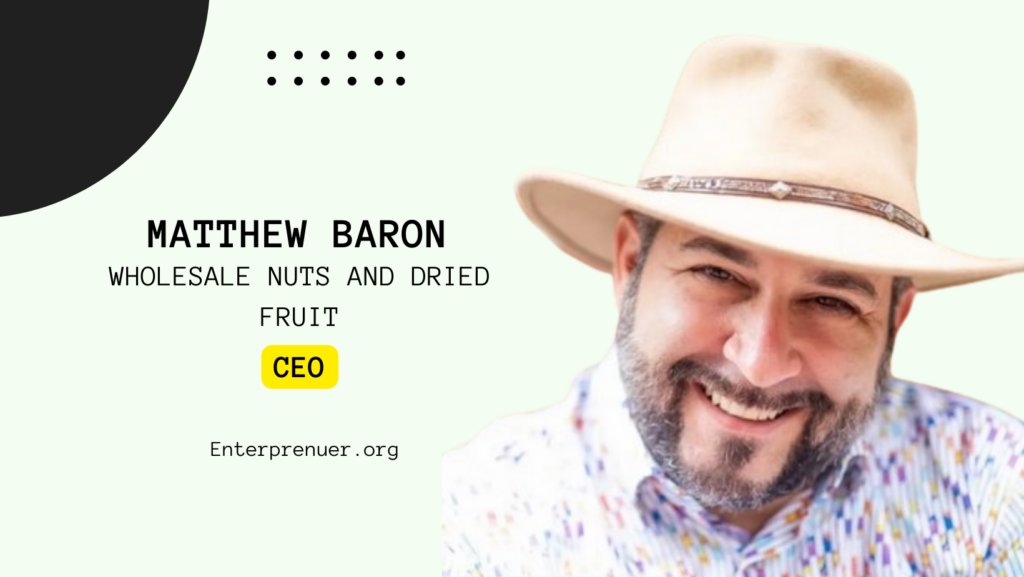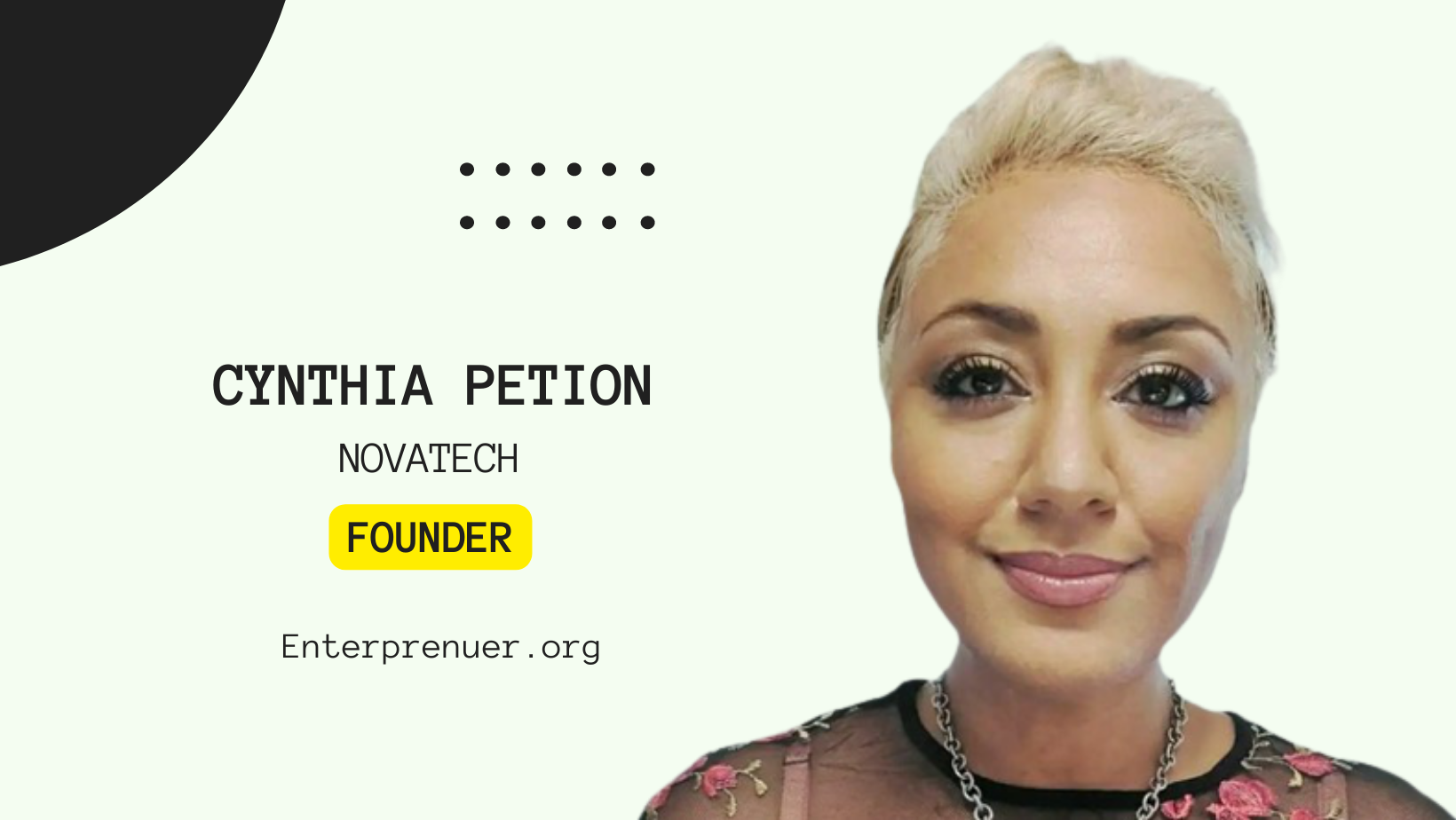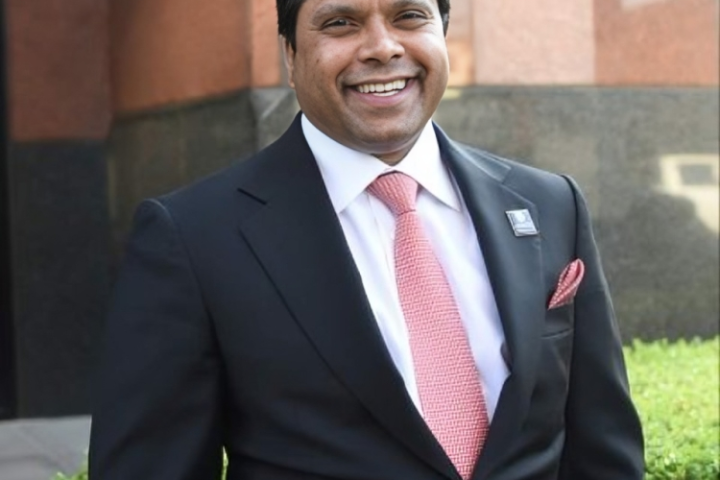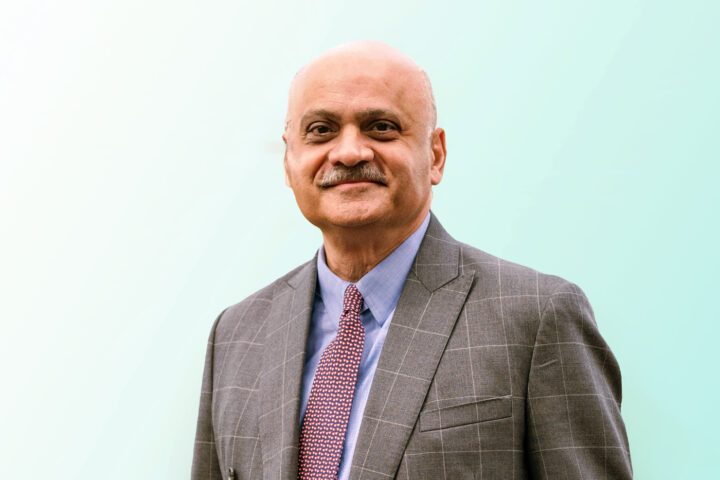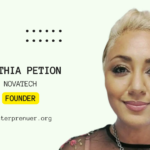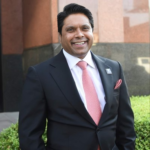Shawn Owen is the founder and CEO of SALT. He has over 25 years of experience in business operations.
A bitcoin advocate since early 2011, Shawn pioneered cryptocurrency-backed lending with the launch of SALT, where he remains involved as a Board Member.
Shawn founded aqua in 2019 to help companies form and manage their future. Equal leverages his knowledge of the corporate structure and crypto-backed technology solutions.
Shawn envisions a world where there is no friction, transparency, and self-evident truths.
This vision starts with corporations and extends into the everyday lives of shareholders.
From where did Equa get its idea?
Equal is a result of my passionate belief in the possibility of improving markets.
I have thought about this for a while based on past experiences in the various industries and companies that I worked with and the challenges they presented.
Startups face fundamental problems due to inefficient private markets.
My view is that agreements must be structured early in the business process.
Groups of people must agree to the basics of what they are doing and how the agreement will benefit them.
Formal contracts are often abandoned at startups.
It is part of the natural process that founders begin to work together over a beer or in their garage. But how do you scale that idea? How does this scale?
Many companies fail to make it to IPO. From start to finish, I see much fatigue and chaos even if you manage to finish the process positively.
Many entrepreneurs don’t know the things they don’t. Their skills are often highly specialized. They excel at what they do best.
They need many other items to help them get to where they need to be.
Equal is examining how all these elements are connected and how they can be used together.
How does governance bring things together and save startups from future problems?
To improve markets, we need to improve how colleagues work together and bring those tools back to the beginning of any company or idea.
We began to explore how we could provide a company with all the tools it needs for governance, incentive management, and equity management, knowing the future.
How do you make your day more productive?
My day is shaped around the question, “How can I add value every day to key stakeholders?” I plan my week around high-priority items, and then I concentrate on work during the week.
My day starts at 5:00 am. Over coffee, I accomplish a lot of essential tasks before others awake.
I go into each day believing that anything is possible with a positive outlook.
My scheduled meetings with clients, colleagues, and employees are usually consolidated in a specific part of the day.
This allows me to concentrate on systems building.
This allows me to use my resources to help the Equa team clear any blockages.
All additional time is used to grow the business.
After work, I spend the evening with my family and have dinner.
I might work a few more hours later if I have the time and energy.
I generally get six to seven hours of sleep each night.
How can you bring your ideas to life?
I visualize ideas and then concentrate on how to make them happen.
I will follow my intuition or feel inspired if I have a feeling.
I write down an idea. It’s a brain dump that contains a lot of pictures.
Ideas that come back to me, I revisit. They might be passed on to others. Once an idea is born, I begin to roll it out.
Prototyping, designing an idea, and structuring it before allocating resources is something I strongly believe in.
However, I have learned to accept that no goal is perfect.
After exhausting my imagination, I can start to create a plan.
Persistence is the key to adapting and staying true to the original motivation behind the idea.
Once I have a plan in place, I test it and refine the concept with successes and failures.
The results inform my next steps. As an idea matures, I feel more confident in bringing people on board and allocating resources.
Which trend is your favorite?
I am very passionate about digitizing value and have dedicated many years of my professional career to this pursuit.
It is exciting to see the recent mainstreaming and adoption of Bitcoin by JP Morgan, Goldman Sachs, Michael Saylor, Elon Musk, MassMutual, and others.
Which habit makes you more productive as an entrepreneur than another?
Apart from getting up early and embracing the day with a positive outlook, it’s also the way I treat customers.
My professional career began in the hospitality and food industries.
This taught me how to be customer-centric as well as a problem solver.
Because you work with people from many backgrounds and personalities, hospitality teaches you how to run a business.
You must be able to think on your feet and stay present for positive outcomes, no matter what team or customer you are working with.
These experiences create habits that go beyond formal learning and processes.
In my work as a technology startup founder, I have adopted the customer-first approach.
This makes me more productive and helps me be more efficient in my time management.
This habit is also used to motivate my staff. There are many options for customers.
Customers have the opportunity to make their business where they feel most fulfilled or to create the most significant value.
This helps you make sense of complicated decisions and competing priorities.
My team is always asked to evaluate and assess their work to adding value for our customers.
Customers are the only reason you should be in business.
This is my definition of productivity as an entrepreneur.
What advice would your younger self give you?
I have so many tips and tricks that I would like to pass on to my younger self.
I wish I had learned how important it is to test and prototype ideas.
I wish I had learned how to hire slowly and fire quickly. I want to tell my younger self not to stress no matter what, especially when it’s complicated.
Stressing is a waste of time. It is better to see the potential and goals and avoid or move around obstacles.
It is better to get in the zone and enjoy the ride. Although it’s difficult, it is possible.
However, if you are too focused on the problems, you will spend more time thinking about the solution than the problem. This can often make problems worse.
Money is an example of something I regret having stressed about.
You will often find that you do not have to worry about money at a specific time.
It is better to be confident that you will get what you need, even if it is just the ability to solve problems and to use that belief as motivation.
The best advice is not to worry and to search for opportunities.
We need to hear something you believe that is true and that nearly everyone agrees with.
It relates to my industry. I believe the entire financial system will be rebuilt using blockchain and Bitcoin and that all institutional players will be disintermediated.
It is a reflection of my outlook on life. I believe that obstacles and pain can be seen as opportunities.
My experience is that once you have overcome an obstacle, it becomes an opportunity to learn.
This is something that many people find difficult to accept.
What is one thing that you recommend to everyone as a successful entrepreneur?
Practice. Keep practicing. Entrepreneurs must practice like musicians.
This attitude is remarkable for how you approach your work. Do your work. Don’t give up.
You can improve your skills every day by practicing. You won’t be able to solve all of your problems if your job is to solve them all at once.
Edison tried many unsuccessful inventions before he invented the lightbulb. Every day is an opportunity to improve over time.
That is what you should aim for. Musicians don’t start playing complicated pieces of music.
Instead, they practice: breaking down the music, theory, and technique.
Practice is essential if you want to move up and be successful over time.
Which strategy has been most successful in growing your business?
You can find great, trustworthy people and let them do their best. This is the key to trustworthiness.
This will allow you to give people more than their abilities rather than limiting them.
This is like giving someone your keys to your car and asking them to return it in good condition.
I don’t have a set limit on where I can start. I give people higher titles than they may deserve.
I also give people more responsibility than they may deserve. Reasonable people can find their way and thrive in the environment you give them.
It is difficult to see the value people can bring to your organization if you place too many restrictions or rules.
I let go of my limitations and give them the resources and tools they need.
This is how you can learn about someone’s capabilities and their roles.
This allows talent to contribute as much as possible to a company’s growth.
How did you overcome that failure as an entrepreneur?
I worked for a startup with a motivated team. We were beginning to hit our stride, and I started to worry about one of the team members brought in during high growth periods.
There wasn’t a particular warning sign at the time. It was just a series of misalignments and misunderstandings that led to this person’s second, third, and fourth chances.
My failure was due to not listening to a gut feeling I felt, which everyone seemed able but could not articulate in concrete terms.
We fired too slowly in that instance. This is a terrible approach for everyone.
I learned from my mistakes and bounced back. Now I trust the feedback from the entire team.
I ask them to speak up earlier, and they, in turn, speak out sooner.
Now, I slowly hire and look for key characteristics that will allow me to give employees enormous responsibilities.
Which business idea would you be willing to share with our readers?
Musicians have more options and are paid better. Someone must come up with a way that musicians can create samples that can be monetized via NFTs.
This would enable buyers to create unique mixes and be flexible quickly. Higher royalties will encourage creativity.
Which was the most expensive $100 you spent recently? Which and why?
I finally found a piece of clothing that I love. It’s an excellent price for a pair of Stitch Fix pants.
This is a great idea. It also saves time shopping for clothing, which I find a bit wasteful.
I send these items to me, and I choose them based on their recommendations.
They are tested out and returned if they don’t suit me. This is a brilliant idea!
Which piece of software or web service can you use to help you be more productive?
It’s Figma, surprising enough. Although I am not a designer, I believe all ideas should be designed and crafted.
It allows me to prototype a workflow and see how customers will interact with the business.
This tool will enable me to know the customer’s perspective and help me envision how a product or service might be perceived.
It’s useful for software and digital interfaces and for understanding services and processes that exist outside of the digital world.
Which book would you recommend to our community? Why?
Traction Gino Wickman This book is about creating sound systems and how these systems can be put in place to achieve measurable results.
It is recommended for anyone who manages or builds a business. It is a crucial read.
Without good processes, you cannot scale a business. You also can’t motivate people or meet stakeholder demands without tangible results.
Lean Startup is a must-read for tech professionals. The Outsiders by William Thorndyke will help you think like an investor.
Which quote is your favourite?
“Accepting the reality that change is happening gives rise to equanimity.”
What are the Key Learnings “Shawn Owen” could offer to Enterprenuer readers?
Make a prototype, get your thoughts out of your head, and put them to the test.
You can block time to do what is most important
Don’t focus on obstacles but the opportunities.
You can make incremental improvements. Think like a musician who is learning the cello.
It would help if you focused on building a team that embodies core values such as loyalty and trustworthiness.
